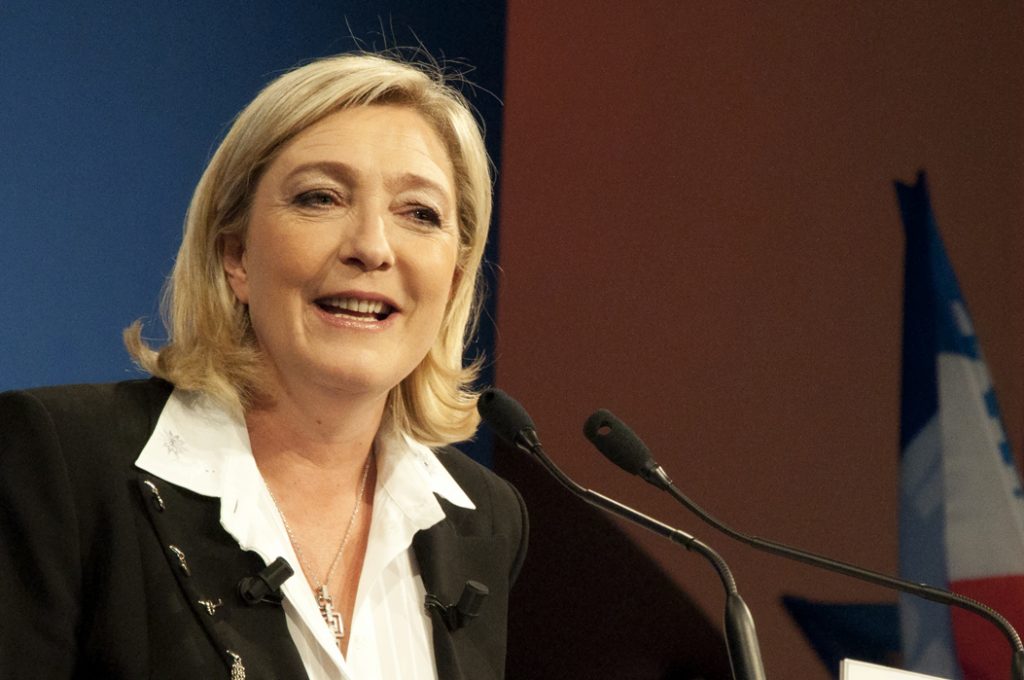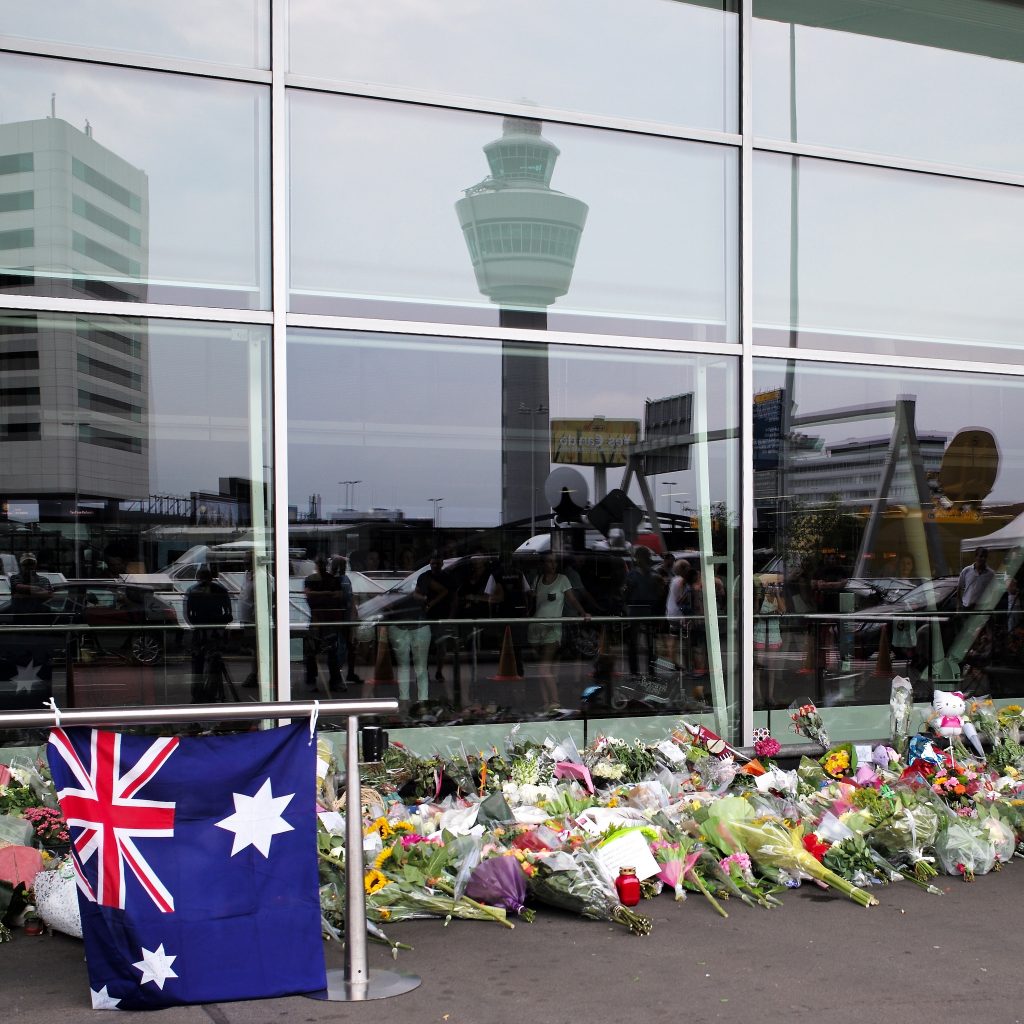Smoke is clearing up after the battlefield. The defeat in May of Marine Le Pen in the French presidential elections and the failure of Geert Wilders’ PVV (Freedom Party) to become the biggest party in the Netherlands left the world relieved and aware at the same time. Anti-Muslim politicians may not have taken over yet, but they are a force to reckon with and so are their followers. There are mechanisms at work that cannot be ignored anymore and are too complex to reduce to mere racism and xenophobia. What’s going on with anti-Muslim sentiment on the Continent?
Tsunami of Islamization
To understand the sentiment of people who vote Wilders, Le Pen or the German far-right party Alternative für Deutschland (AFD), we must first understand that they arise from the human condition. Humans are complex systems but equipped with the same hardware setup — we all work in similar ways. The differences between groups, however, is the software installed. We could say that Christians are iOs and Muslims are Android, and that a shepherd roaming the mountains of Romania uses different apps than a businessman on Wall Street. This makes neither better than the other. Like any system, or network of systems, we protect ourselves against other systems. We perceive the outside world as a threat that continually tries to take us over. We install another software package — like the Patriot Act — to scan our system for viruses (terrorists) and quarantine them. We get highly suspicious. In the end, after numerous intruders, virus infections and attacks, we do not feel safe within our system anymore.
But feelings do not always represent reality. Emotions often times distort the facts, which show that the situation is not as bad as it seems or is slightly different than what people think. Professor Thijl Sunier (Vrije Universiteit Amsterdam) showed me that there are only 3% of Muslims in the European Union, whereas Wilders has been talking about a “tsunami of Islamization” for years now. The dominant image of Islam in Europe and the Netherlands is that the “Islamic presence is new and unprecedented,” Sunier observes. However, the history of Islam in Europe is much more prominent than we realize.

National Front President Marine Le Pen > Flickr/GlobalPanorama
Islam’s roots in Europe
The Ottoman Empire can be seen as one of the great European empires that had very strong trading relations with the Dutch, Sunier says. The dominant view of Islam seems even stranger when we realize that during the colonial period, the Dutch ruled over one of the largest Muslim populations in the world.
Sunier emphasizes that we refuse to see our historical ties with Islam and that the presence of this religion in Europe is not new at all: “Denying this, is a falsification of history,” he says. Furthermore, he argues that when it comes to the debate about Islam in Europe, “The indigenous Muslim populations in the Southeast of the continent (Bosnia, Albania, Macedonia) and in Eastern Europe are hardly mentioned.”
Migrant workers from countries like Turkey and Morocco are the reason that the dominant view of Islam was formed. Basically, these are the first significant Muslim groups on indigenous Dutch soil. They have built mosques, opened their own shops and supermarkets, attended schools and universities, appeared in the media, government and, of course, the workforce. By their arrival, the country changed visibly. Many local Dutch don’t react very well to these changes, so thoughts of nostalgia arise: In the past, everything was better. The population was more homogeneous and the world was less globalized, which makes the living environment easier to comprehend. The arrival of terrorism perpetrated by some Muslims made many Dutch people suspicious about their fellow Muslim citizens. Are all Muslims religious fanatics? Are they here to take us over? Are these people our enemies? When questions like these arise, power can be gained from turning these questions into facts, magnifying them and offering a cure. Politicians like Wilders and Le Pen use this strategy.
The European stronghold
The Second World War and the Holocaust are prime examples that Europe is susceptible to xenophobic tendencies. The harassment of Jews and Muslims is much higher in European countries than in other nations, according to research by the Pew Research Center. Europe is the cradle of civilizations that have conquered and colonized major parts of the world, including Muslim territories like Iraq and Indonesia, and have waged wars for land and resources. But these events were all outside Europe. Those who remained on European soil were barely exposed to exotic cultures until the 20th century.
A wave of refugees came to the Netherlands from the former Dutch Indies after Indonesia’s independence in 1945. My Indonesian grandparents were among those refugees. They belonged to the elite class in their homeland, but were expelled from the country because of political reasons. During their first years in the Netherlands, my family experienced all kinds of racism and prejudice: monkey sounds, being treated as primitives and even being called “heathens.” I have noticed that Turkish and Moroccan immigrants also have experienced unkind treatment. This surely leads to second and third generations growing up feeling they do not belong and are not welcome.
Hostile and humiliating treatment of minorities is a mixture of fear and a feeling of superiority. When people believe in the superiority of their tribe — whether because of economic success, wealth or cultural heritage — they may turn hostile toward those who intrude their territory to “leech” from them. That’s why Wilders repeatedly refers to immigrants as gelukszoekers (seekers of fortune), suggesting that people from Africa and the Middle East are from inferior regions. Wealth attracts and repels. Everyone wants a piece of the cake. But the more people come to the party uninvited, the more aggressive the bouncers become. What we see now in Europe is a manifestation of this aggression — a firm fist that embodies a very clear message: Enough is enough. Europe has become a stronghold.
Common enemy
Does opposing immigration make a person xenophobic or racist? Not necessarily. Defending the tribe against intruders is part of human nature. Animals that live in packs do this too. I don’t think this natural behavior is an active engagement in hating beings who are different, but rather it is a product of our survival instincts to preserve the tribe.
But we are not living in the tribal age anymore. We live in a global village connected by technology and trade. We have access to knowledge about the things we fear and we can experience them first-hand.Yet there are many who are unwilling to be informed about the facts and unwilling to turn the unknown into the known. These people stubbornly stick to their own belief systems and ideas, even when bombarded with examples and facts that prove otherwise. Instead, they point at someone or something and say: “They are to blame.”
Professor Herman Beck of Tilburg University in the Netherlands is very clear about this phenomenon: “A human being exists by images of enmity.” Beck tells me that the rise of Islamophobia is a consequence of the fall of the Berlin Wall in 1989, which “ensured that the communists are not the enemies of the West anymore, but Islam and Islamic fundamentalism.”
The human pack animal needs enemies. It doesn’t really matter who they are, as long as they are convincing enough for people to unite against them. But this does not always mean hostility. Two parties can ridicule each other and use the opponent as a source of laughter. “The essence of comedy is being critical,” British actor John Cleese said in an interview in 2016, “and that means causing offense sometimes. But we shouldn’t protect everyone from experiencing negative emotions by enforcing political correctness.” It’s important to keep that in mind before labeling someone racist or xenophobe. Cracking jokes at the expense of the enemy is human and quite delightful.
When I was researching Dutch civil rituals in 2014, Malaysia Airlines MH17 had crashed in Ukraine, in which 298 people, including 193 Dutch civilians, were killed and all eyes were looking at Russia. In the aftermath of the crash, there was not only a seismic increase of support for Dutch Prime Minister Mark Rutte (which had been at an all-time low), but also a sudden sense of solidarity among the Dutch people. A common enemy strengthens feelings of community. Even the Dutch, who consider themselves down to earth, are receptive to this. The Dutch performed a civil ritual to mourn MH17 victims by enforcing a national moment of silence for one minute. Concentrating in silence on what happened — and whom to blame — with millions of others is a very powerful experience for the mind. Rituals like these not only create solidarity but also make us focus on the enemy.

A memorial set up for the victims of the Malaysian Airlines incident > Flickr/RomanBoed
That being said, Russia might be the cure for Islamophobia. “When our relationship with [Russian President Vladimir] Putin worsens, we will see that Islam will be put on the back burner,” Beck says, implying that common enemies are replaceable. China and North Korea also have the potential to become the great new villain. But why would the West need enemies? “NATO must have a reason to receive our tax money,” Beck says with a laugh.
So the good news for Muslims is that chances are big that Islam will cease to be the enemy of the West. The other good news is that we will have a replacement foe that we can bash together.
*Image: Geert Wilders at a rally. Flickr/JouWatch.





